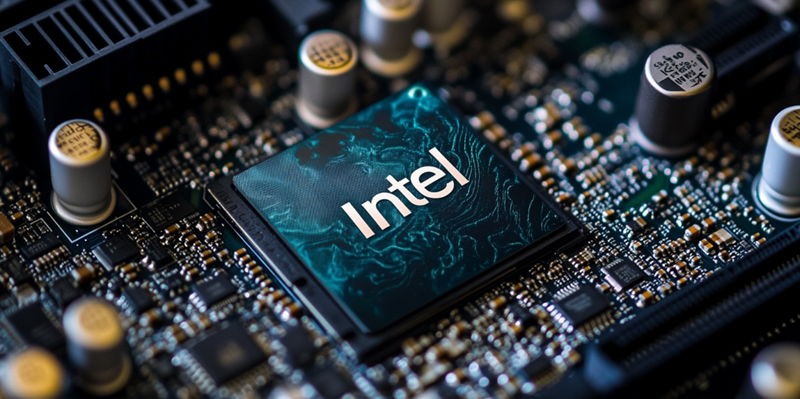Intel’s impending reveal of its next-generation Arc Battlemage desktop GPUs next month is positioned to strategically precede CES 2025, signaling a significant market entry. This launch marks Intel’s focused targeting of the mid-range GPU market, an arena traditionally controlled by industry giants NVIDIA and AMD. Despite the lukewarm reception that Intel’s inaugural Arc GPUs received within the gaming community, the tech behemoth is determined to rebound spectacularly with the Battlemage series.
The announcement, initially teased by the reputable leaker Golden Pig Upgrade on Weibo, suggests that Intel’s Battlemage GPUs are poised to deliver remarkable performance. Although concrete specifics about these processors remain largely undisclosed, the leaker’s optimism hints at a potentially groundbreaking entry for Intel in the discrete GPU market, specifically aimed at wooing mainstream gamers. The technological leap promised by the Battlemage series, if realized, could signal a significant shift in market dynamics.
Advanced Technology and Strategic Partnerships
Intel’s Arc Battlemage GPUs are set to be manufactured using TSMC’s cutting-edge 4nm process. These GPUs will feature up to 32 Xe2 cores, 16 GB of memory, and a 256-bit bus, specs that could translate to substantial gaming performance. Early results from Intel’s Lunar Lake SoCs, which incorporate the Xe2 architecture, have shown promising performance. This success suggests that Intel might be capable of scaling these benefits to their desktop GPUs, hence presenting an enticing alternative for gamers.
Intel’s collaboration with TSMC for chip fabrication is a calculated maneuver intended to compete with top offerings from NVIDIA and AMD. Dive into the rumors, and you’ll find elements of various GPU dies collating in the Battlemage lineup, including BMG-G21, BMG-G10, and BMG-31. Such a multitude of dies indicates a comprehensive specification sheet and underlines Intel’s robust approach to this launch. Coupled with their advanced infrastructure, there’s a potential for a noteworthy shift in the GPU market if the performance lives up to predictions.
Previous Challenges and the Path Ahead
Historically, Intel’s forays into the GPU market have not secured significant market traction. NVIDIA and AMD have long-standing dominance and a loyal user base that has been difficult to penetrate. However, the rollout of the Battlemage series underscores Intel’s unwavering resolve to establish a foothold in the GPU sector. By carving out a niche in the mid-range segment—an area that both NVIDIA and AMD are not currently prioritizing—Intel hopes to meet an untapped demand.
The market potential for Intel’s Arc Battlemage GPUs is substantial. Mid-range GPUs cater to a broad segment of gamers who seek robust performance without the premium pricing of high-end models. If Intel can efficiently deliver on performance, stability, and price, they stand to capture a significant portion of this market. Nevertheless, the ultimate success hinges not just on technological prowess but also on widespread consumer adoption and perceived value within the gaming community.
Conclusion
Intel is set to unveil its next-generation Arc Battlemage desktop GPUs next month, a strategic move right before CES 2025. This launch signifies Intel’s serious entry into the mid-range GPU market, a domain long dominated by NVIDIA and AMD. Although Intel’s first Arc GPUs received a tepid response from gamers, the company aims to make a strong comeback with the Battlemage series.
The announcement was first hinted at by the well-known leaker Golden Pig Upgrade on Weibo, who suggests that the Battlemage GPUs will offer exceptional performance. While detailed specs remain largely under wraps, the leaker’s enthusiasm points to a potentially revolutionary release for Intel in the discrete GPU market. This release seems designed to appeal particularly to mainstream gamers. If Intel delivers on the technological advancements promised by the Battlemage series, it could substantially alter the current market landscape, positioning Intel as a formidable competitor in an industry where it has previously struggled.

